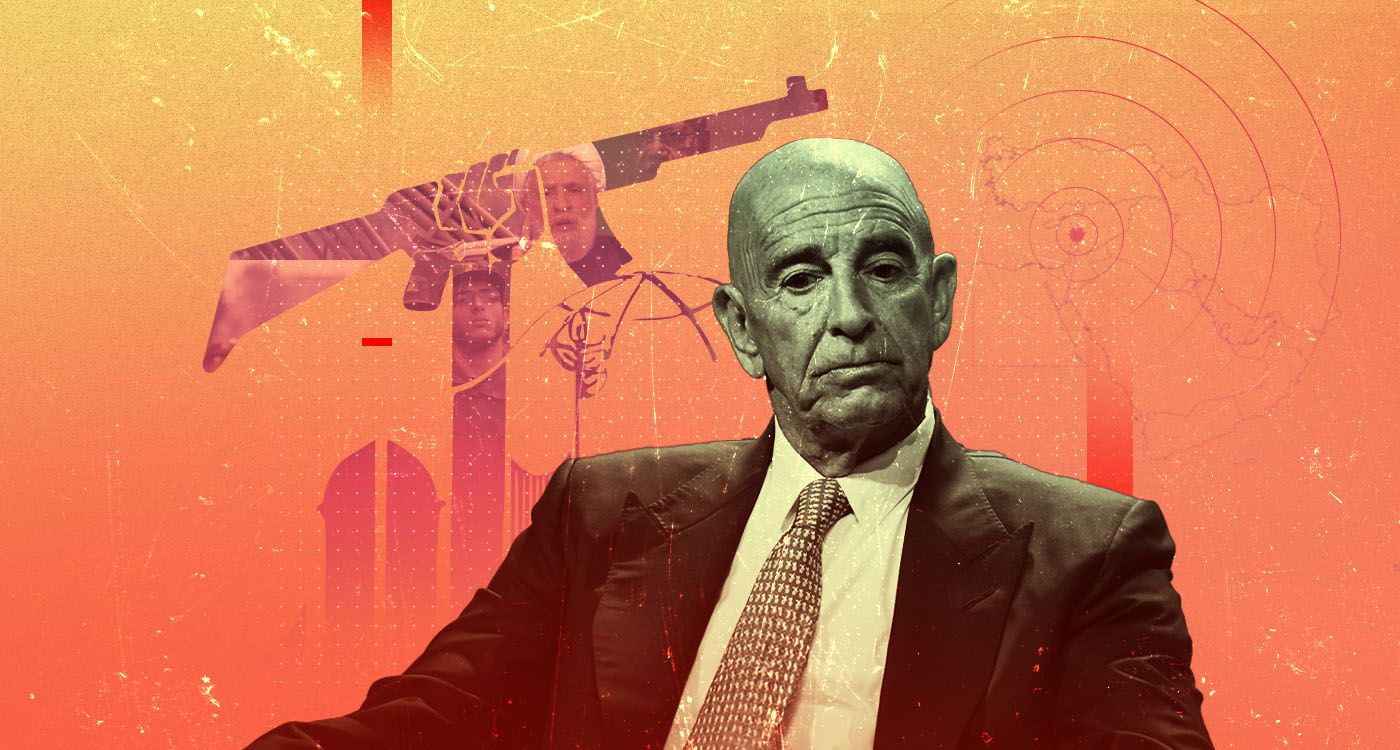
US Ambassador to Turkey and Envoy to Syria Tom Barrack is creating a mess in the Middle East, seemingly unaware of the repercussions. Working with the Lebanese government, he crafted a five-page plan outlining steps for Lebanon to disarm the Iran-backed militia Hezbollah and reciprocal actions for Israel. The fatal flaw? Barrack failed to consult Israel before committing it to this Lebanese-American proposal, expecting the Jewish state to adhere to a plan it never reviewed. This, Barrack believes, is diplomacy. It is not.
On Monday, Barrack visited Beirut, shortly after Iran’s National Security Advisor Ali Larijani demanded Lebanon abandon its policy of disarming Hezbollah. Lebanese officials rebuffed Larijani, urging Tehran to respect international norms and stay out of Lebanon’s affairs.
Hezbollah and its media, rattled by the abysmal outcome of Larijani’s visit, unleashed a frenzy of attacks on the United States for pushing Lebanon to disarm the militia. But then, surprisingly, Hezbollah’s outlets celebrated Barrack’s visit, particularly his statement that Lebanon had fulfilled its role and that Israel must now cease policing Hezbollah. For a mere Lebanese cabinet vote endorsing the American-Lebanese Hezbollah disarmament plan, Barrack criticized Israel for its targeted strikes that continue to eliminate Hezbollah operatives as they attempt to rebuild their militia’s capabilities.
Israel’s operations against Hezbollah’s operatives and arms depots align with the American-Lebanese plan to disarm the militia by year’s end, especially when compared to Lebanon’s endorsement plan that remains toothless, with no evidence that Beirut has the will or capacity to force Hezbollah to surrender its weapons to the state.
As they received Barrack, Lebanese President Joseph Aoun and Prime Minister Nawaf Salam both demanded Israel reciprocate the cabinet’s vote. Barrack blamed Israel for not adhering to a plan it neither saw nor agreed to.
Barrack’s brand of diplomacy creates problems rather than solving them. With unchecked authority, this US official risks escalating tensions the longer he meddles in matters beyond his mandate. Barrack is, after all, America’s ambassador to Turkey and envoy to Syria – his title does not encompass Lebanon or Lebanese-Israeli relations. Yet he shuttles between Ankara and Beirut, attempting to resolve a conflict between Beirut and Tel Aviv.
Barrack’s approach echoes the flawed diplomacy of former President Barack Obama, whose policies often praised adversaries like Iran and Hezbollah while criticizing allies like Israel. Obama’s diplomacy failed spectacularly, committing unforced errors and creating avoidable problems through a lack of regional expertise.
Today, however, thanks to Israel’s blood and treasure, the Middle East has a rare opportunity for positive change that aligns with the interests of the US and its allies. But such change demands seasoned diplomats, not those who expect allies to follow plans they never approved of.
America’s diplomacy in the Middle East rides on Israel’s success in weakening Iran and dismantling Hezbollah and Hamas. Long disengaged from the region’s complexities, America negotiates with Middle Eastern factions bolstered by Israeli strength, not American prowess. US diplomats must recognize that those wielding real power – not the messengers – are the ones who call the shots.
Excluding Israel from discussions on Lebanon, Syria and Turkey, as Barrack has done, is uncharacteristic of US diplomacy. His praise for Hezbollah’s ally, Lebanese Speaker Berri, during Monday’s visit, stunned observers in Washington.
Barrack emerged on the Middle Eastern stage mere months ago and may remain for three years at most. But those with decades of experience in the region see his diplomacy as a recipe for trouble. The mess he is creating will take Washington many years to clean up after his tenure ends.
If the US does not swiftly correct course in Lebanon, Syria and Turkey, it will regret these missteps for years to come. As often happens, America may throw its hands in the air, blaming the Middle East’s complexity for its failures.
The US has numerous competent envoys who grasp the region’s intricacies. Washington need only deploy those with expertise and sideline those who are better suited to touring the region’s historic sites than navigating its diplomatic challenges.
The situation involving Lebanon, Israel and Hezbollah is clear. Hezbollah, an armed militia, launched an unprovoked war against Israel. Disarming Hezbollah would resolve the conflict. Expecting Israel to offer concessions when Lebanon has provided nothing beyond a cabinet vote is absurd. If Barrack fails to see this error, he should be counseled to correct course. If he recognizes it yet continues his flawed diplomacy, it might be in US interest for him to step aside and let more experienced diplomats take over.




Comments